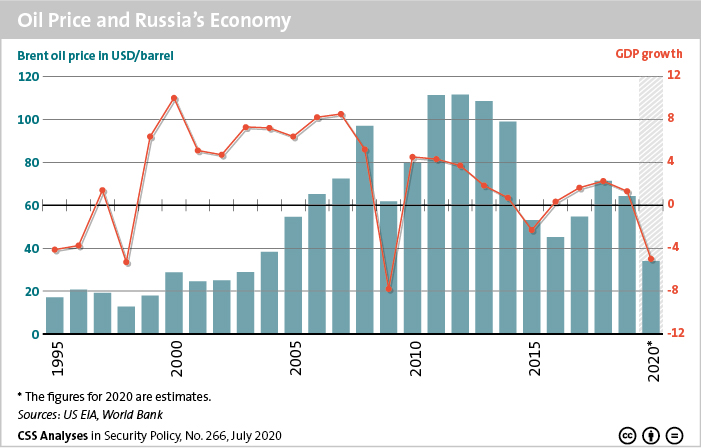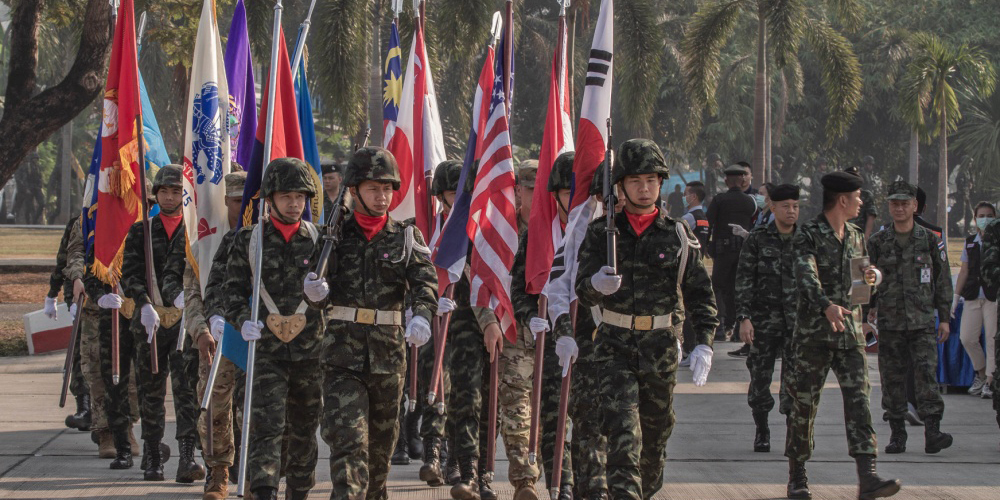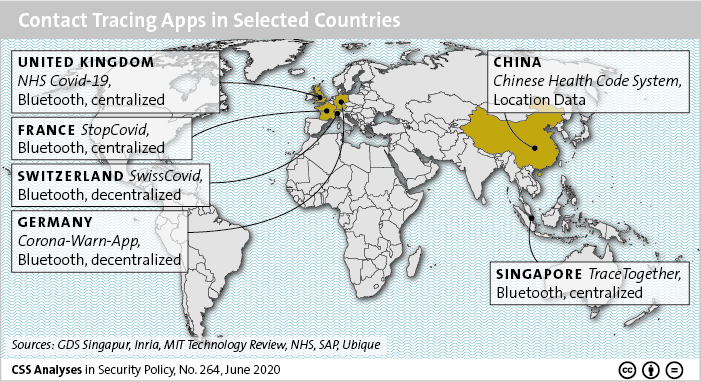
The coronavirus crisis has hit the Russian economy at one of the worst possible times. As this graphic illustrates, since 2014/15, it has been impacted by low oil prices and Western sanctions and has recorded only moderate growth rates over the past three years.
For more on how the coronavirus crisis is a strain on the Russian economy and constitutes a stress test for the popularity of the regime, read Jeronim Perović’s CSS Analysis in Security Policy here.


 In the context of the global efforts to deal with the coronavirus pandemic, digital technologies are taking on a role that is both visible and controversial. This graphic maps Contact Tracing Apps in selected countries and offers details on some of its features, such as data storage and technology used for device detection.
In the context of the global efforts to deal with the coronavirus pandemic, digital technologies are taking on a role that is both visible and controversial. This graphic maps Contact Tracing Apps in selected countries and offers details on some of its features, such as data storage and technology used for device detection.